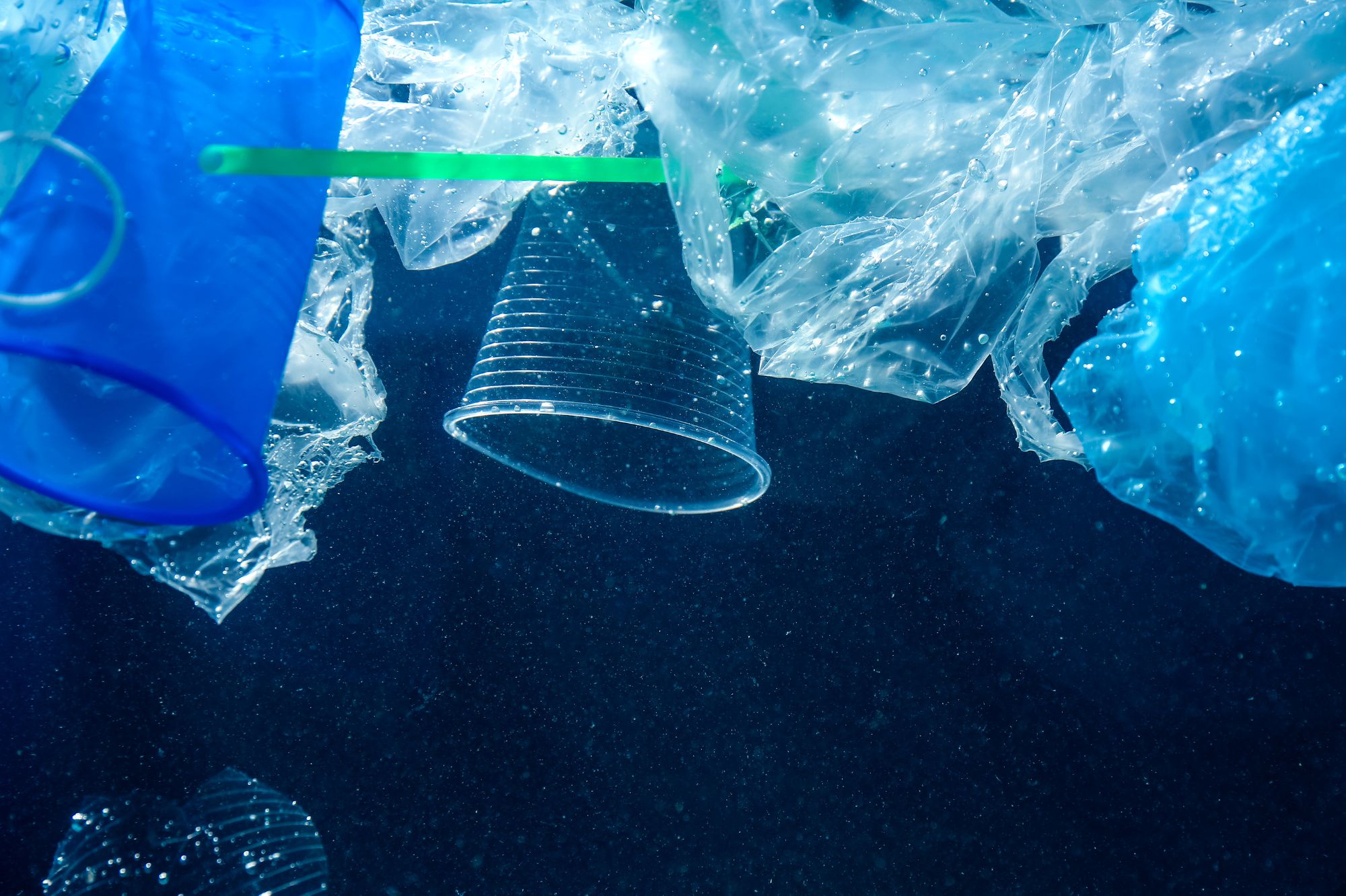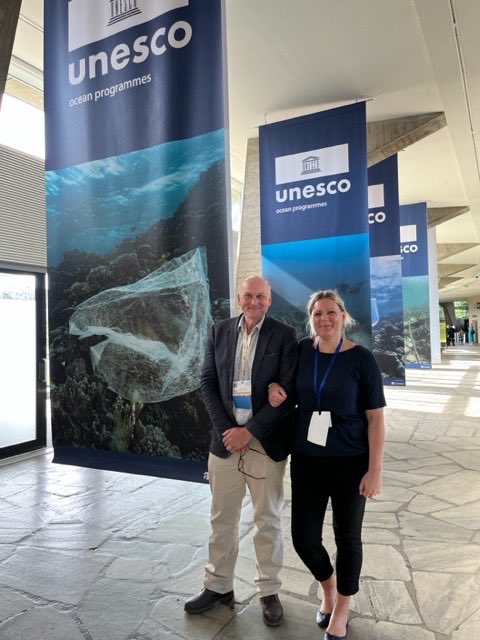Story
What happened at the INC-2 Global Plastics Treaty meeting? Dr Samantha Garrard explains
26 June 2023
Our Dr Samantha Garrard attended the second session of the Intergovernmental Negotiating Committee to develop an international legally binding instrument on plastic pollution, including in the marine environment (INC-2), earlier this month, here she tells us what happened, what will come next, and the outcomes she’s hoping for.
 “I attended the second session of the Intergovernmental Negotiating Committee on the Global Plastics Treaty (UNEA 5/14), which was held in Paris the 29th May to the 2nd June 2023. These negotiating meetings are incredibly important, as they will decide the components that go into the treaty, and how successful we are at ending plastic pollution. PML has been researching the impact of plastic pollution for many years, and as a result, the expertise we have on the subject is considerable. In fact, you can find our research referenced in the Plastics Science briefing for the consideration of the Intergovernmental Negotiating Committee at its first session, as developed by its Secretariat. I attended the INC-2 as an observer, and as part of the Scientists’ Coalition, ready to provide advice to any delegates, should they need it.”
“I attended the second session of the Intergovernmental Negotiating Committee on the Global Plastics Treaty (UNEA 5/14), which was held in Paris the 29th May to the 2nd June 2023. These negotiating meetings are incredibly important, as they will decide the components that go into the treaty, and how successful we are at ending plastic pollution. PML has been researching the impact of plastic pollution for many years, and as a result, the expertise we have on the subject is considerable. In fact, you can find our research referenced in the Plastics Science briefing for the consideration of the Intergovernmental Negotiating Committee at its first session, as developed by its Secretariat. I attended the INC-2 as an observer, and as part of the Scientists’ Coalition, ready to provide advice to any delegates, should they need it.”
Above: Dr Samantha Garrard with Professor Richard Thompson who leads the International Marine Litter Research Unit from Plymouth University
“The start of the meeting felt exciting, with inspirational talks from Inger Anderson from UNEP and President Macron of France on the importance of preventing plastic pollution.”

Above: Inger Anderson giving the opening speech
“In the proceeding days the mood was somewhat dampened by countries stalling discussing the substantive elements of the treaty, and debating the provisional rules of procedure. After no agreement could be made on this matter, it was decided to move on to the elements of the treaty, and this is where things became more exciting.”
“During this last three days there were some promising negotiations, with many countries promoting a treaty with high ambitions, with elements including banning/ phasing out chemicals and polymers of concern, phasing out avoidable and unnecessary plastic products, strengthening waste management, and increasing circularity, preventing plastic leakage into the environment. In terms of how these actions would be carried out, many nations called for National Action Plans and for financial mechanisms including measures such as multilateral financing and extended producer responsibility. The importance of capacity building, technology transfer, and the need for redesign and innovation were also discussed.”
“During my time at the INC-2, I got the opportunity to discuss plastic pollution with the Swiss and UK delegates, and hear talks from a wide range of countries discussing the various actions they were implementing to reduce plastic pollution. It became clear that many developing countries and small island developing states (SIDS) don’t have the waste management and recycling infrastructure needed, and many SIDS also suffer from an influx of plastics from other countries, transported by the prevailing currents. Whilst tourism is a key industry for the majority of these islands, tourists often generate many times more plastic than locals. Various NGOs discussed how they were providing on-the-ground expertise to local communities, whilst the Food Packaging Forum has been working on identifying the chemicals found in single-use plastics.”

Above: Discussing the requirements of the GPT with UK delegates
“It was great to catch up with lots of different actors during my time in Paris, and particularly lovely to catch up with my colleagues at the Galapagos Conservation Trust, whom I work with on the GCRF ‘Pacific Plastics, Science to Solutions’ project.”
“Overall, it was an extremely positive experience, although these negotiations can be fraught with differing opinions and reaching consensus on a treaty to end plastic pollution will include compromise at both ends of the spectrum. Hopefully, the treaty will provide a global instrument to reduce the production of virgin plastics, simplify the design of plastics to enhance circularity, ban unnecessary single-use plastics and provide a financial mechanism to ensure lower-income countries are able to effectively manage their waste. I guess we will have to wait until 2024 to find out what happens - watch this space!”
Find out more about Dr Samatha Garrard and her work >>
Find out more about our work on the issue of plastic pollution >>